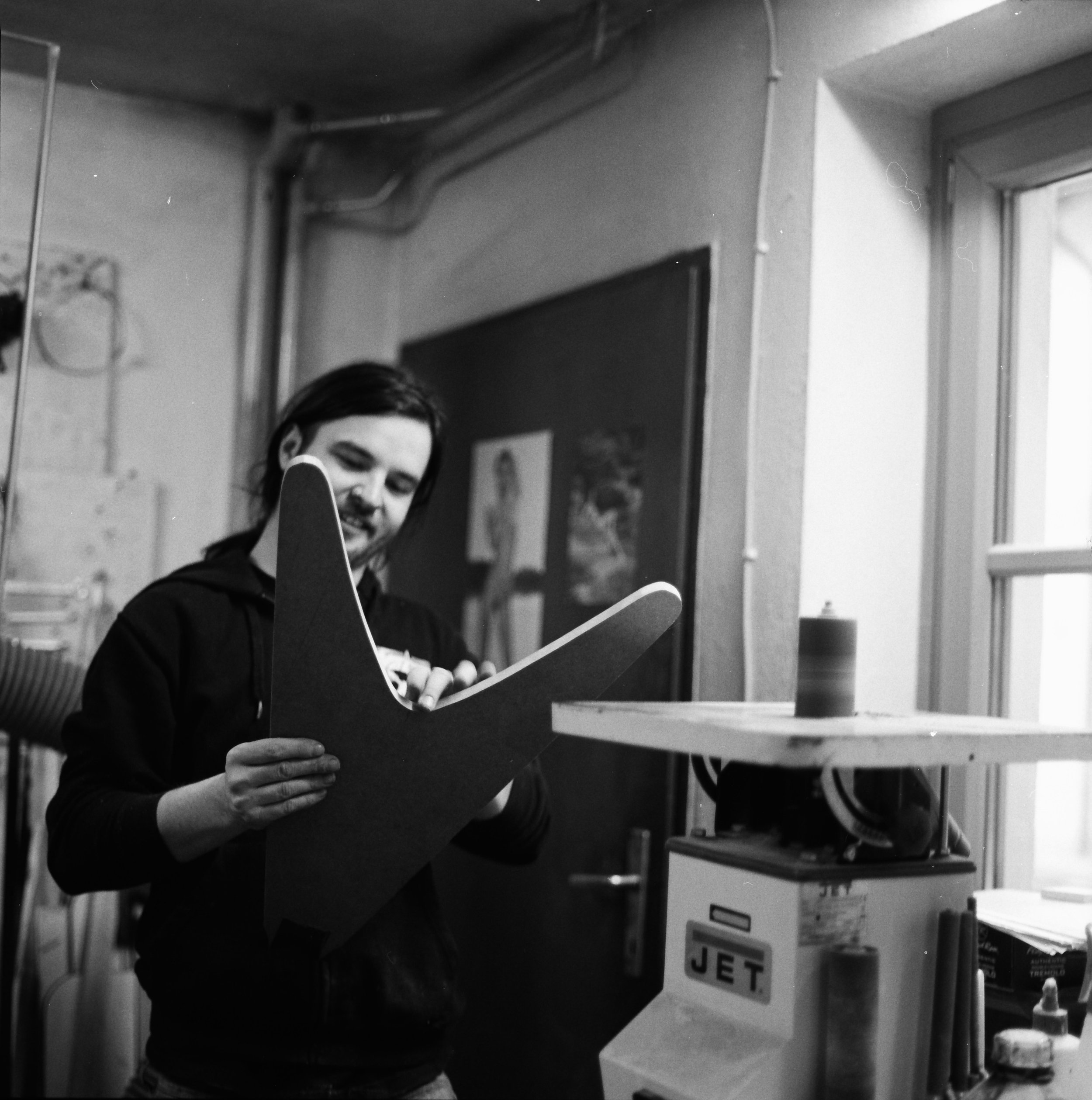Custom guitar builder on medium format black & white film
In my personal environment, there are many people who like to express themselves in an alternative way, create things, and engage in various artistic endeavors. As an artist, I always like to try my hand at new things, and I am also willing to invest time and money in something to learn things from scratch. Since the field of photography is so vast and I am interested in almost everything, I have never managed to specialize in one genre or, as I call it, limit myself.
At a certain point, I had the idea of photographically accompanying my friends in whatever they were doing - be it, as here, building guitars, tattooing, bands at concerts, video recordings, or in the studio, and so on. It was always important to me that I had a good personal relationship with the people I was portraying. I had to know what makes them tick, and they also had to feel comfortable when I accompanied and portrayed them with my camera. In the case of this series, the process was particularly easy for me, as Adam is a good friend of many years who has a great passion for his projects and also likes to share this with others, whether in the intimate setting of his small workshop or on the stages of Europe with his band "Eisenhand."
So we met one afternoon in his workshop in rural Upper Austria near the Danube to document part of the process of making one of his guitars. As neither of us had a specific plan that we wanted to work through, I simply asked him to do his thing - the right moments would come naturally. Of course, I thought about which technique I wanted to use to capture everything beforehand, and as the individual work steps of making a guitar do take some time, I also decided in favor of a slower working method - medium format 6x6, to be precise. In my opinion, the "look" you can create with such cameras is perfect for slow reportages.
Many people notice that the pictures have something special but can't put their finger on it - that's the magic of medium format. Paired with a relatively coarse-grained but fast black and white film like the Ilford HP5+ (@ISO800), I had my setup together. In the course of the afternoon, I shot 2 films, i.e., 24 photos. Even though I was apparently limited by the small number of photos, it was very easy for me to take photos and select the motifs; I just had to take my time and observe him closely, watch the light and his movements, and take a photo every now and then. If you get on well, it's not difficult to try out more daring perspectives to see what comes out and whether they work. We had no pressure; we didn't have to deliver anything to anyone; the whole thing was just for us, which I think is also reflected in the photos.
Of course, I was curious to see what came out after the shoot. I developed the photos that same evening (Ilford DD-X), dried them, scanned them, and shared them with the protagonist. I have the feeling that this type of photo is becoming more and more important over the years. A contemporary document of craftsmanship, passion, and also friendship.
Mario Aumüller (Instagram - @mario_aux), a 37-year-old resident of Natternbach and Linz, Austria, could be likened to a researcher who not only documents but also shapes the various subcultures he identifies with. Skateboarding has been the focal point of his life since his early teenage years, serving as the nucleus around which everything else revolves. His diverse interests, including exploring uncharted territories, camping, attending concerts, screenprinting, darkroom printing, and embracing the DIY culture, are all extensions of his passion for skateboarding. This passion is what initially led him to take up photography—to capture moments of his friends skateboarding. For those who might cross paths with Aumüller, it's highly likely they'll find him with a camera either in his pocket or hanging around his neck, a testament to how integral photography has become to his existence.










